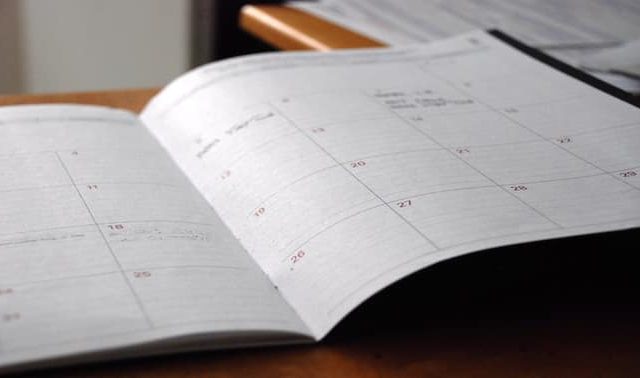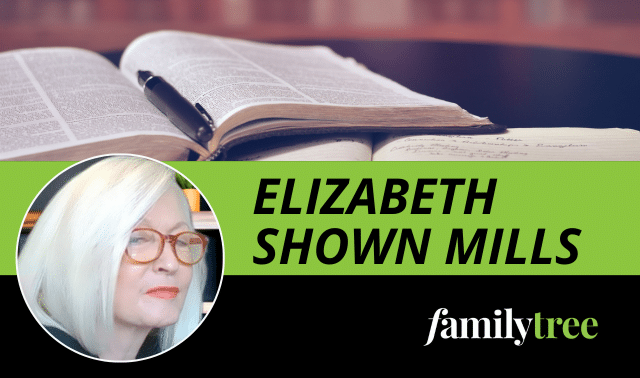Sign up for the Family Tree Newsletter! Plus, you’ll receive our 10 Essential Genealogy Research Forms PDF as a special thank you.
Get Your Free Genealogy Forms
"*" indicates required fields
Research fuels just about everything genealogists do. Whether you are working your way back several generations to complete your family tree or just yearning to know more about your war hero great-great-grandfather so that you can tell his story accurately and vividly, careful, thorough research ensures that you have all the facts in place before you share your family history.
Sometimes research can be as easy as perusing census records and finding the exact information you need on the first form you find. However, many genealogists are used to having to dig a little deeper to find what they seek—but oftentimes, they need to ask the right questions before they can understand exactly what they are looking for.
Enter the genealogy research question. Knowing how to craft effective genealogy research questions can lead you to discoveries that deepen your respect for your ancestors’ triumphs and struggles, contextualize pivotal times in history and even correct misconceptions about your family history. Below we provide some tips for helping you identify effective genealogy research questions, as well as some specific structures they may take, so that you can get closer to knowing your ancestors better than ever.
Qualities of an Effective Genealogy Research Question
Before you can craft a decent genealogy research question, you might want to know what a decent question entails—and what you should avoid if you want to steer as far as you can from brick walls along the way.
There is no one “correct” research question; the questions you ask will depend heavily on the type of information you seek. That said, how you word your research question can better ensure that you are looking for answers in the right places.
An effective research question should:
- Have a Clear Objective. Before you formulate your question, you will want to ask yourself: What information are you looking for, and what do you aim to do with said information once you find it? The questions you ask for the goal of simply filling in genealogical blanks will probably differ from those you ask if you wish to write a detailed family history. You might even consider writing a “statement of purpose” in which you verbalize your research plans and goals. This statement of purpose need not be more than a couple of sentences and can be as simple as the following: “I want to find out the year my Great Aunt Katherine’s husband died and the cause of death so that I can write about his death respectfully and accurately in my family history novel.”
- Be Possible to Research with the Resources and Tools at Your Disposal. All genealogists pine to learn as much as they realistically can about their ancestors. Unfortunately, we can only ever know is what happened centuries ago based on what the records tell us. Sure, sometimes we are pleasantly surprised and stumble upon an old newspaper article in a digital archive or unearth a great aunt’s journal from the attic. Generally speaking, though, your research question should lead you to accessible resources that might hold the answer. Think censuses, military records, property deeds and land patents—records officially held in some capacity at the local, state or federal level. Of course, you can always adjust your research question as you learn more or even generate new questions as you gather information. But starting out, you want to give yourself the chance to find something concrete.
- Be Specific. A good research question will cover all of your bases; more specifically, it will identity people and places so that you know where to look from the start. For example, you might clarify “Where was my great aunt born?” to “Where in Ohio was my Great Aunt Katherine born?” That way, you can strategize your research plan to go beyond just national databases and also cover state-specific resources like Ohio History Connection and Ohio Genealogical Society.
Creating Your Genealogy Research Questions: Question Types
Just as there is no one “right” genealogy research question, there is no one correct method for forming one. That said, because so much of genealogy research hinges on people, places and important dates, it helps to ground your questions in these concrete terms. With that in mind, we have created four different categories of genealogy research questions: What/Who questions, When questions, Where questions and Quantity Questions. Below we define what each question type might entail with several examples of each.
What/Who Questions
We have grouped What/Who questions together because you will likely ask them both with the same objective in mind: to identify a specific person or at the very least some distinct information about them. When forming a What/Who genealogical question, you should first consider what information you already have about the person. For example, do you know their full name? Are you aware of any nicknames they might have gone by? Did they hold any special titles throughout their lives? The more detailed the description you can lay out from the start, the better idea you will have regarding the gaps in knowledge you must fill.
What/Who questions are excellent questions for those just starting out with their genealogy research or with filling out their family tree, as they help put names to the vague, shadowy ideas of ancestors.
Examples of What/Who Questions:
- What was the highest rank Great-Great-Grandpa Joseph Greene held when he served in the military?
- What was Great Aunt Katherine Davis’ maiden name?
- Who was Great Uncle Henry Peterson’s second wife?
- What were the names of Great-Great-Grandpa Benjamin Reid’s children?
When Questions
If you are seeking the specific dates on which certain events occurred, you will likely find yourself asking many When questions. Asking the right When questions can serve a number of different purposes. For example, they can help you create a clear chronological timeline of an ancestor’s life, which can come in handy if you wish to tell that ancestor’s story.
Examples of When Questions:
- When did Grandpa Alexander Pappas arrive in the United States from Greece?
- When did the Williams family settle in Philadelphia, Pa.?
- When was the first Fisher son born?
Where Questions
If you want to trace an ancestor’s movement across the country over the course of many decades, “Where” questions can help you pin down the places they called home. Such questions are especially worth answering if you wish to plan a heritage vacation or even just create an homage to an ancestor’s hometown.
Examples of Where Questions:
- From where in Germany did Great Grandpa Hans Gruber hail?
- Where in California was Great Aunt Bette Potter buried?
- Where in New York did the Weiss family settle after World War II?
Quantity Questions
Quantity questions are exactly what the name suggestions—they ask how many of something existed or how often a given event occurred. By asking Quantity questions, you can better ensure that no one is left out of the family tree and no places are left unexplored.
- How many children did Great-Great-Grandpa Benjamin Harris and Great-Great-Grandma Beatrice Harris have together?
- How many times did Aunt Katherine Davis and her husband move throughout their lives together?
- How much land has the Thomas family owned over the past three generations?
Related Reads
Last updated: August 2024








